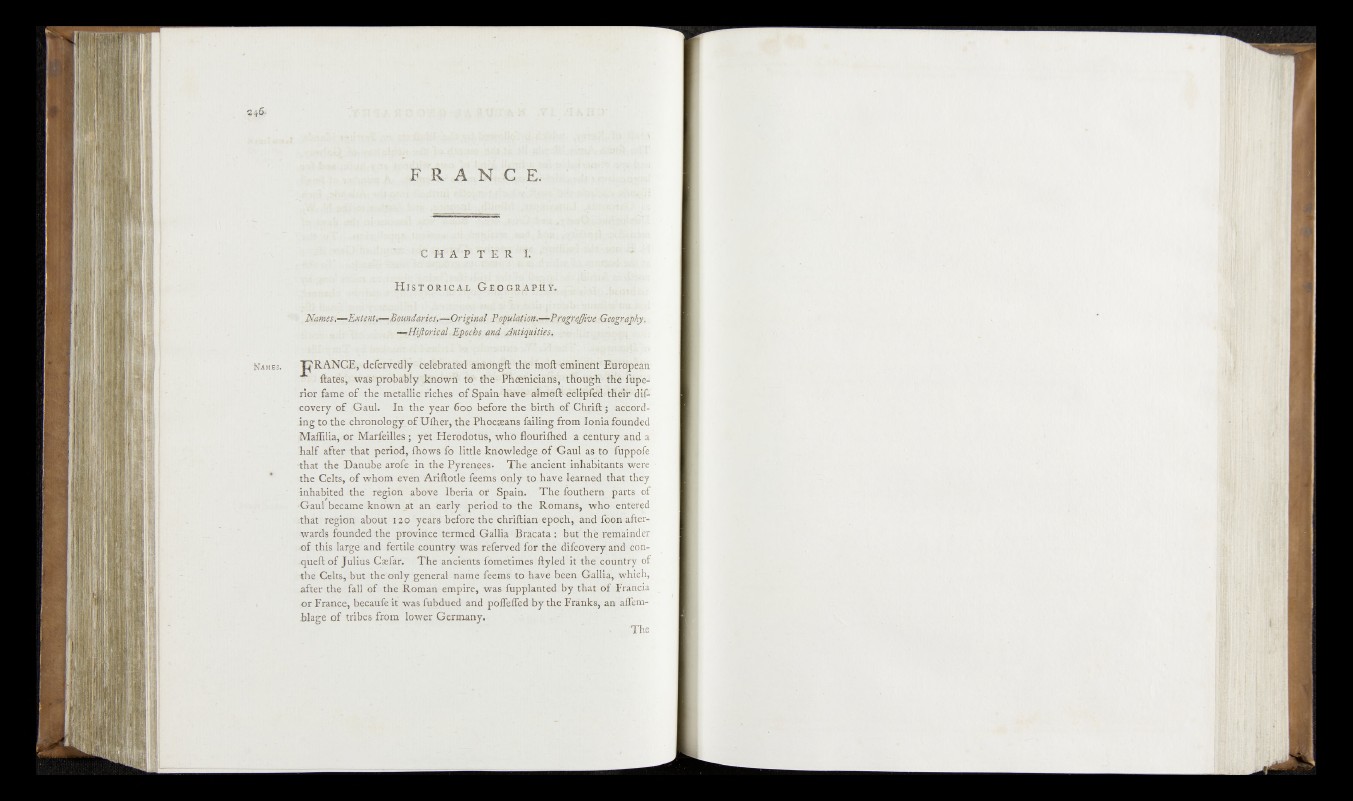
F R A N C E.
C H A P T E R I.
H l S T O R ici A4-, G j l i p p RjA ? HTV.
Names,—Extent.— Boundaries*—-Original P_opul4tio».~Prqgr^ffkje :Qe<tgwp-hy.
j —sHiJtordcalfMgdehs'atid Èp&êffl&lé&b 3 lS
Names. jpR A N G E , defervedïy celebrated amongft theJ maft eminent* ËïirlJpéan
I ftat-es, was-probably knowd tb t%e;^È<E%ician¥, % f e ü ^ 4ïiè mpe-
riör fame o f the metallic' riches o f SpülaTravé- aknéfb é^p#M(t$Êélf'’’diC
covery o f Gaul. I n thé year 6oo before the..birth o f Cbrift*; |||feórd-
in g to the chronology o f Uflxer, the Phocsans failing from Ionia^phnded
;Maffilia, o r Marfeilles; yet Herodotus, whó flaurifhed a century and a
.half after th a t period, fhows foTittiè knowledge. o f G a u l as-to ^ p p o fe
th a t the Danube arofe in the Pyrenees. The ancient ihhabkai|ts were
the Celts, of whom even Ariftotle ieems,ovn |y to have learned, that they
■inhabited th e region above Iberia of Spain. The fouthern parts of
•Gaul b é éltae kn ow n at an early p e rio d to the Roman's, wnbffentered
th a t region about 120 years before'the chriftian epPe’h^ .an^T o^ra|ter-
wards founded th e province termed GalHa'iBracata : but'thé$?éÊhaindet
« f this large and fertile country was referred fo r thè'difco^éryjW'-Mn-
rtoiteftof Julius Csefiiv T h e ancients fometimes fty led 'itth£cöunti§fcpf
th e Celts, but the'only general name feems to havé been Gallia^-.wlfeh,
a fte r the fall of; the Roman empire, was fupplantéd’by. that efTrancia
o r France, becaufe it was fubdued and poffefled by th e Franks, anf affem-
hlage o f tribes from lower Germany.